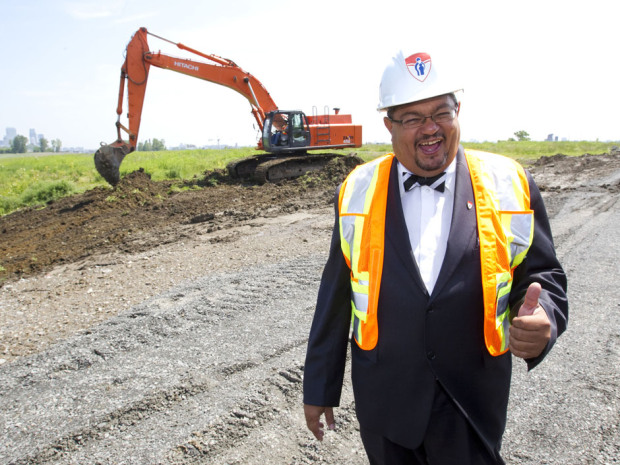Like the other inmates who fight for survival inside Pavilion Six, the crowded, disease-ridden building reserved for foreigners at Panama’s notorious La Joya prison, Arthur Porter scrounges for food and fends off rats. But that’s about all he has in common with the local population, mainly drug traffickers and the odd killer.
The rest are lost causes, men without options or second chances. They wonder what Dr. Porter is doing inside La Joya. They can’t understand why he has chosen to remain there, eating spoiled rice and beans, drinking dirty water, dealing with corrupt guards. They look at Dr. Porter in wonder, because unlike themselves, he could choose to leave.
Dr. Porter arrived at Pavilion Six earlier this month, determined to fight extradition to Canada, where he is accused of participating in an alleged $22.5-million kickback scheme relating to the construction of a Montreal super hospital.
Before his curious international business affairs were exposed in this newspaper, forcing his resignation from Canada’s Security and Intelligence Review Committee and as boss of the McGill University Health Centre, Dr. Porter was an upper-crust jet-setter, winging from one country to another in an Air Canada business-class seat. He flew gratis: Dr. Porter served as an Air Canada director until his troubles began.
Earlier this year, he was charged in Canada with conspiracy and with laundering the proceeds of crime. But police couldn’t arrest him, because by then he was firmly ensconced in Nassau, Bahamas, where for years he has operated a private cancer clinic, and where his wife and three daughters resided.
Dr. Porter refused to return to Canada, telling local reporters that he had developed stage four lung cancer and was too sick to travel.
But in May, he was arrested by Interpol in Panama, where he claimed to be on a diplomatic mission on behalf of his native Sierra Leone. His wife Pamela was with him, and she was arrested on charges of money laundering in Canada.
This month has been especially hard for Dr. Porter. He observed his 57th birthday locked inside Pavilion Six, a ramshackle concrete bunker meant to house 250 prisoners and stuffed to the rafters with almost 500. Last week, his wife was extradited to Canada and was remanded in a Montreal jail. This week, she was denied bail and remains under lock and key.
Porter lobbied Cote d’Ivoire to become an honorary consul for corrupt African regime, but was deemed ‘not fit’.
On Wednesday, the government of Sierra Leone issued a press release from its embassy in Washington, D.C., declaring that it had cancelled Dr. Porter’s diplomatic passport, and that it had “revoked” his position as the country’s “Ambassador at Large.” Dr. Porter has also touted himself as Sierra Leone’s Ambassador Plenipotentiary; the title no longer applies, says Pasco Temple, information attaché at Sierra Leone’s embassy in Washington.
Mr. Temple would not say what prompted this week’s announcement. “I was simply instructed to put out the press release explaining that Dr. Porter no longer has any diplomatic standing with us,” Mr. Temple said Friday, adding that he wasn’t aware of Dr. Porter’s alleged crimes. Nor was he aware of his current predicament, inside the Panamanian prison.
An inmate inside Pavilion Six says Dr. Porter has gradually adapted to the prison regime and conditions, which he describes as medieval. Reached this week on his Blackberry — the device of choice among prisoners with enough resources to bribe guards and have goods smuggled inside — the inmate said Dr. Porter, an oncologist, has been dispensing medical advice to other captives, who have “1,001 medical needs.”
In return, they made him a “makeshift bed” from cardboard, and found a space for him on a crowded cellblock floor. He recently received an upgrade: Dr. Porter now has a bunk with curtains, affording him “a little bit of privacy.”
“I hope for the time we will have him here, we will benefit from his skills and experience as a doctor,” the inmate said in an email.
But he expressed surprise that Dr. Porter has chosen to fight extradition to Canada, especially since he’s purportedly dying of cancer. He’s been taking “oral chemotherapy” medication, the inmate says, and occasionally uses an oxygen mask. “Personally, I believe [jail in] Canada would have been a better option for him than La Joya Panama,” the inmate wrote in an email. “A man of his status and caliber deserves more than this. But it is his choice to fight extradition.”
Only Dr. Porter knows why he prefers to suffer in a dangerous hellhole, rather than return to Canada, like his wife, and answer to charges. Perhaps he has more to lose, should he come home.
Arthur Porter trades medical advice for ‘makeshift bed’ and ‘a little bit of privacy’ in ‘medieval’ Panama prison





















Laissez un commentaire Votre adresse courriel ne sera pas publiée.
Veuillez vous connecter afin de laisser un commentaire.
Aucun commentaire trouvé